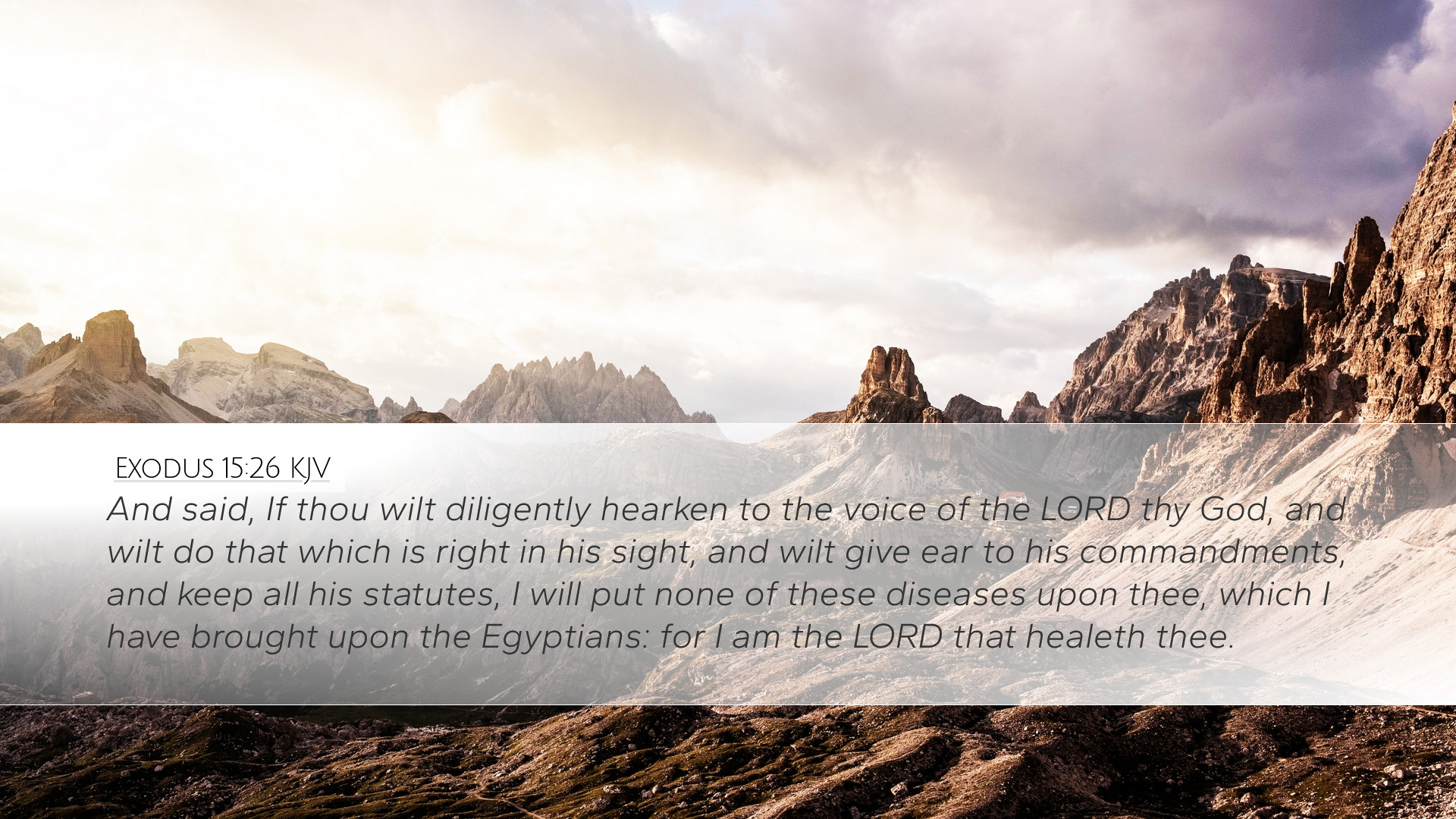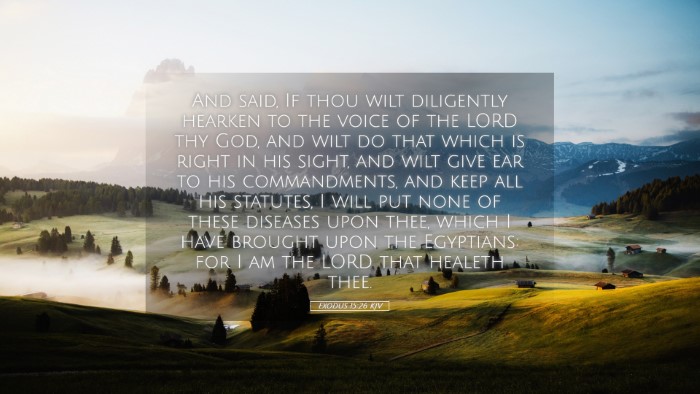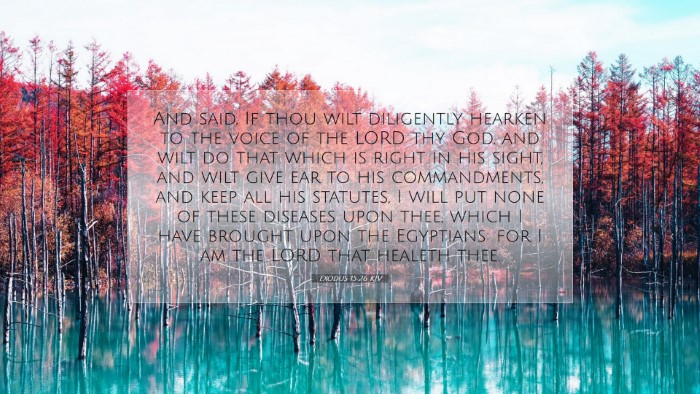Commentary on Exodus 15:26
Exodus 15:26 states, "If you will diligently listen to the voice of the LORD your God, and do what is right in his eyes, and give ear to his commandments and keep all his statutes, I will put none of the diseases on you that I put on the Egyptians, for I am the LORD, your healer."
Introduction
This verse serves as a profound declaration of God’s character, particularly in relation to His people. It encapsulates the promise of health and healing contingent upon obedience, and underscores the covenant relationship between God and Israel. This commentary draws insights from notable public domain sources to explore its implications for believers and church leadership.
The Context of the Verse
Exodus 15 follows the miraculous crossing of the Red Sea and the songs of praise sung by Moses and Miriam. The Israelites had just witnessed God's mighty deliverance, and in this atmosphere of gratitude, God articulates His expectations of them. The context reveals a pivot from liberation to the responsibility that comes with being God's chosen people.
God's Healing Nature
God introduces Himself as "the LORD, your healer." This declaration emphasizes the divine attributes of care, compassion, and restorative power. Albert Barnes comments that this verse not only reveals God's intent to heal but also establishes a divine basis for health among those who are obedient.
Conditions for Divine Healing
Matthew Henry provides an important insight regarding the conditional nature of God's promise: “If you will diligently listen...” indicates that the healing and protection promised are not automatic but require active participation from the believer. The term "diligently listen" suggests a deep, attentive engagement with God's voice, highlighting the importance of both hearing and acting on His commands.
Obedience as a Response
- Listening: The first step is an attentive ear to God’s voice. In a world full of distractions, the call to listen is more relevant than ever.
- Doing What is Right: The phrase "do what is right in his eyes" signifies a moral standard that aligns with God’s character. Adam Clarke emphasizes that righteousness in actions reflects the moral nature of God.
- Heeding Commandments: Keeping God's commandments is an act of loyalty and submission, affirming that believers are in covenant with their Creator.
The Contrast with Egypt
The reference to the diseases of the Egyptians serves as a stark contrast to the intended health of the Israelites. The plagues that befell Egypt were consequences of their rebellion against God. This distinction serves two purposes: it illustrates the consequences of sin and rebellion, and it highlights God's desire for His people to experience His healing touch.
Implications for Believers
Pastors and theologians might reflect on how this verse applies to the contemporary church. The call to obedience and the promise of healing remain relevant. Issues of health—both physical and spiritual—must be approached with the understanding that God desires wholeness for His people.
Spiritual and Physical Health
Henry emphasizes that the promise extends beyond just physical ailments. Spiritual diseases, such as sin and separation from God, are addressed through obedience and intimacy with the Divine. By listening to God's voice, believers can navigate life’s challenges with His guidance and preventive care.
Theological Reflections
In theological discourse, Exodus 15:26 raises significant questions about divine sovereignty, human agency, and the nature of suffering. The apparent linkage between obedience and physical well-being challenges believers to examine their lives:
- The Nature of God's Covenant: God's promises are built on relational fidelity; thus, healthy spiritual practices enhance the believer's well-being.
- Understanding Suffering: While God promises health, suffering can still occur. This verse invites believers to seek understanding in trials while remaining obedient.
- Communal Applications: As communities of faith, churches are called to uphold and encourage collective obedience, ensuring a space where healing and health can flourish.
Conclusion
Exodus 15:26 encapsulates the heart of God towards His people; it is an invitation to experience healing through obedience. The weight of responsibility for listening and acting upon God’s word is profound, yet the reward—a life free from affliction and filled with divine healing—is tremendous. As scholars, pastors, and students delve into this text, it may serve as a reminder of the vital connection between hearing, acting, and experiencing God's restorative promises.


